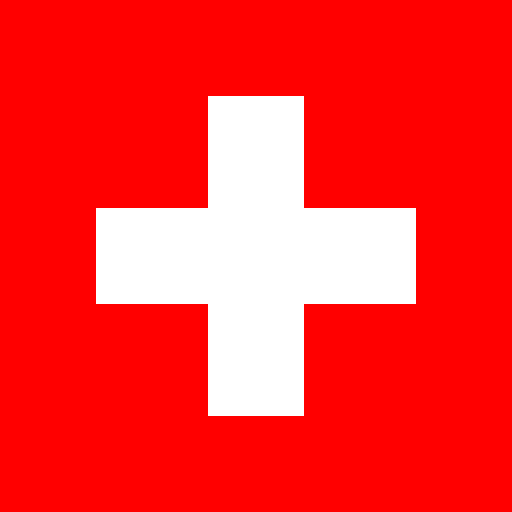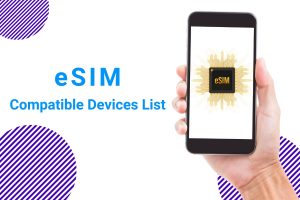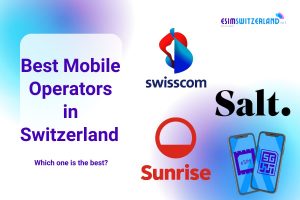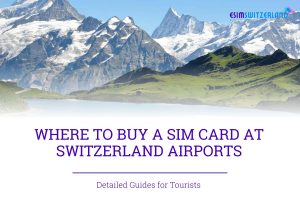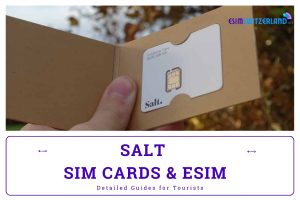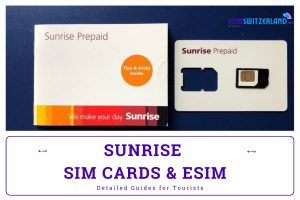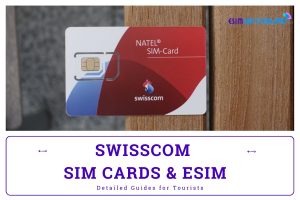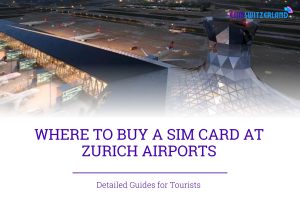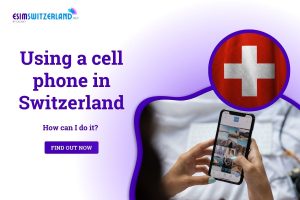Planning a trip to Switzerland? Not sure whether to get a local SIM card? A Switzerland SIM card can improve your in-country experience. This guide provides all the details on getting a local SIM to enhance your travels. We’ll outline everything you need to know about purchasing a SIM card locally to make your communication and connectivity simpler during your time in Switzerland.
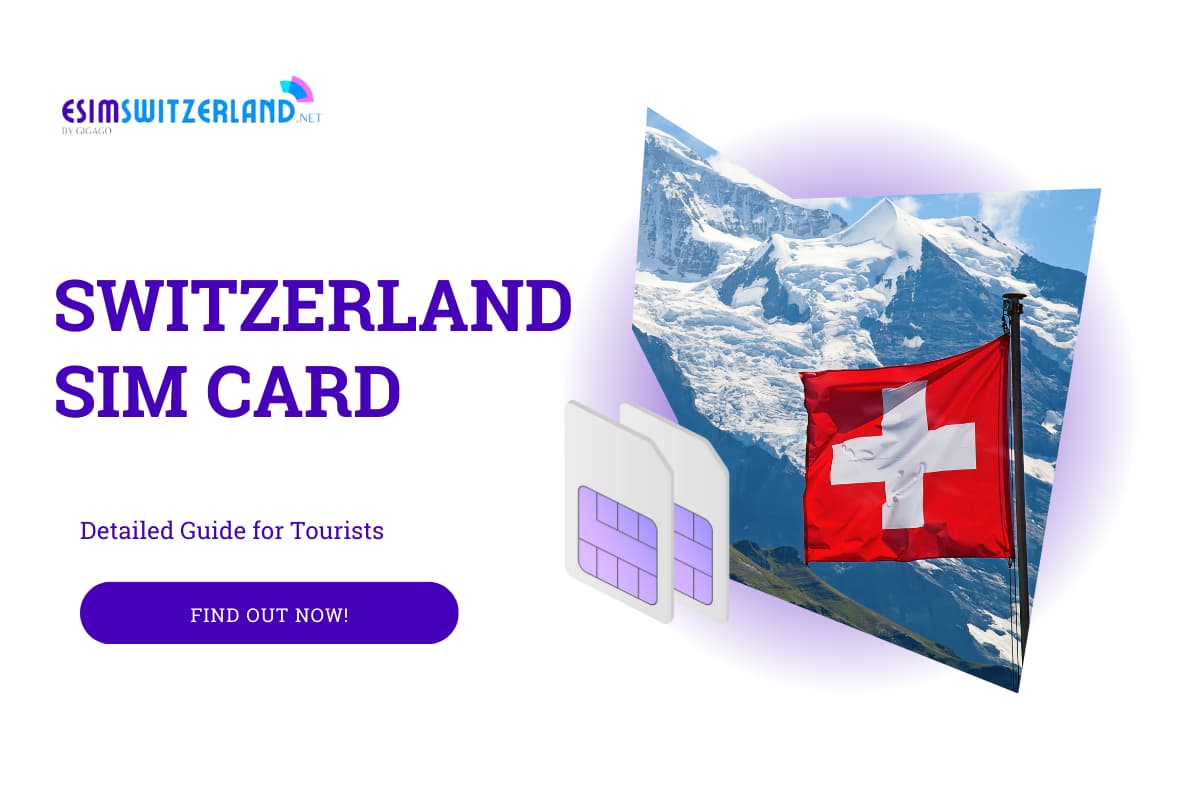
Table of Contents
I. Should I Buy a New SIM Card for My Switzerland Trip?

For most travelers, getting a local Switzerland SIM card is highly recommended. Here are some of the key benefits:
- Avoid roaming charges: With a Switzerland SIM, you avoid expensive roaming fees from your home network. Roaming data in Switzerland can cost $10 per MB or more.
- Better network coverage: Local Swiss SIMs provide excellent nationwide coverage on Swiss networks like Swisscom, Sunrise and Salt. You’ll get better service than roaming.
- Unlimited data options: Swiss SIMs often come with unlimited data plans perfect for Google Maps navigation, social media, messaging apps and more.
- Affordable local calls & texts: Making calls and texts within Switzerland is very affordable with a local SIM. International calls are also cheaper.
- Access to cheaper local rates: You’ll save money by getting the same rates on talk, text and data that locals do.
The main downside is that you may have to change your phone number during your trip. But overall, getting a Switzerland SIM card is the best option to stay connected and avoid roaming shock.
Confused about using your phone in Switzerland? Check out our guide "Using Cell Phones in Switzerland: How Can I Do It?"
II. Switzerland SIM Card Types – Which One is the Best for Tourists?
When getting a prepaid Switzerland SIM card, you have two main options:
Physical SIM vs eSIM
There are both traditional physical SIM cards and eSIMs available in Switzerland:
| Physical SIM Card | eSIM |
| Pros | Pros |
| Instant activation upon purchase | No physical card needed |
| Wide availability at retailers | More sustainable option |
| Known technology | Can store multiple profiles |
| No need for compatible phone | Easier international roaming |
| Cons | Cons |
| Need to insert into phone | Requires eSIM-compatible phone |
| Can lose or damage card | New technology not all providers support |
| Need multiple cards for diff plans | Set up process slightly more complex |
| Takes up space in phone case | Need compatible operating system |
While regular SIMs still work fine, eSIMs are ideal for short trips.
Data-Only vs Voice & Data SIM
Swiss SIMs also come in two functional types:
| Data-Only SIM | Voice & Data SIM |
| Provides only a data plan, no calling or texts | Includes both data and a Swiss phone number for calls & texts |
| Cheaper basic data plans | More expensive as includes calling credits |
| Works in any unlocked smartphone | Requires an unlocked phone compatible with Swiss networks |
| Best for using messaging apps like WhatsApp | Better for also making local calls |
For most Swiss travelers, a data-only eSIM will meet their needs:
- Cheapest option with plenty of data for apps, maps, etc
- Messaging via apps like WhatsApp, FaceTime Audio, etc is free
- No need for an expensive calling plan
But if you want to make local calls and texts, go with a voice & data plan. Either option will give you mobile data access in Switzerland.
III. How Much Data is Enough for a Prepaid Tourist SIM Card for Switzerland?
For a short trip to Switzerland, most travelers will be fine with 3-5GB of data for a week or two. Here are some typical data usage amounts:
- Light usage: 1-2GB per week (emails, light web browsing, minimal videos/music, occasional maps).
- Moderate usage: 3-5GB per week (daily web use, some video/music streaming, frequent map navigation, social media).
- Heavy usage: 5-10GB+ per week (extensive video/music streaming, mobile gaming, constant map use, working/studying online).
5GB is usually a good middle ground, letting you use data regularly without worrying about running out. But budget travelers can get by on 2-3GB, while power users may prefer 10GB+.
Good to know: Get a Switzerland eSIM and you can easily add more high-speed data from the app if needed. Be sure to turn on WiFi when available to conserve your plan data.
IV. How Much Does a Switzerland SIM Card Cost?
Here are the average costs for tourist SIM cards in Switzerland:
| Operators | Plan Name | Data/Calls & Texts | Price (USD) | Validity |
| Salt | Surf 5GB | 5 GB high-speed data | $10.45 | Month |
| Surf 50GB | 50 GB high-speed data | $26.10 | Month | |
| Sunrise | Data L | 3 GB high-speed data | ~$21.25 | 30 days |
| Data M | 1 GB high-speed data | ~$10.50 | 30 days | |
| Data S | 500 MB high-speed data | ~$7.88 | 30 days | |
| Data XL | 10 GB high-speed data | ~$47.50 | 30 days | |
| Swisscom | Prepaid Flat 7 | Unlimited calls and texts | Unlimited data | $21 |
| Prepaid Flat 30 | Unlimited calls and texts | Unlimited data | $68.25 | |
| Prepaid Flat 90 | Unlimited calls and texts | Unlimited data | $157.50 |
Overall, while not cheap, the prepaid plan prices in Switzerland are reasonable value given the quality of networks and service available nationwide across the alpine country.
V. Switzerland eSIM – Alternative to Physical SIM Cards
Instead of a plastic SIM card, you can get a digital eSIM for your unlocked phone.
Benefits of using a Switzerland eSIM include:
- Easy online signup – Just choose a plan, register online, and activate your Swiss eSIM instantly. No need to find and go to a shop.
- Convenience – eSIMs are embedded in your phone so there’s no small card to lose or switch between devices.
- Flexibility to change plans – You can change data amounts or switch plans remotely via the provider app.
- Multi-network access – Some eSIM providers offer plans on multiple Swiss networks, allowing you to switch networks via the app too.
- Compatible phone required – The main limitation is that your phone must support eSIM functionality. iPhones and newer Android models typically do.
eSIMSwitzerland.net offers flexible plans at affordable prices, starting from $5 with the convenience of activation anywhere via the eSIM standard. This makes it a simple, cost-effective solution for staying connected while visiting Switzerland.
Go Beyond Borders with esimswitzerland.net
VI. Where to Buy a Switzerland SIM Card?
There are three options to get your Switzerland SIM card:
- Airport Stores: Major airports like Zurich, Geneva have retail stores and vending machines selling SIMs from Swisscom, Salt upon arrival. Activation is usually instant. Find the best place for a hassle-free SIM card purchase at airport.

- Cellular Carrier Stores: Swisscom, Salt, and Sunrise have their own stores in major cities and towns where you can purchase prepaid SIM cards directly from the provider.

- Convenience/Electronics Stores: Chains like Migros, Coop, Fust, Manor sell SIMs from various Swiss providers. Widespread locations make them convenient options.
Tips: One of the simplest approaches is to purchase an eSIM online before your trip. This avoids the hassle of searching for a store after your arrival. Be sure to consider activating a Swiss eSIM, which allows for instant activation without needing any documentation.
VII. How to Use Switzerland SIM
Using your new Swiss SIM card or eSIM is very easy:
- Make sure your phone is unlocked – Most modern phones are unlocked, but check with your home carrier if needed.
- Insert the SIM (physical SIM only) – Turn off your phone, locate your SIM tray, gently insert the new Swiss SIM, then restart your device.
- Activate the plan – For eSIMs, activate online. For physical SIMs, follow prompts to activate after restarting with the SIM inserted. You may need to provide passport details.
- Top up your balance – Add more data or airtime by purchasing top-up vouchers online or codes at stores. Auto-recharge may be available.
- Connect to the network – Your phone will connect to the Swiss network automatically. Wait for the network name to appear.
- Adjust cellular settings (may be optional) – Under cellular settings, you may need to configure the access point name (APN) manually if data doesn’t work at first. The provider can advise you on APN settings if needed.
Then you’ll be ready to start using your Swiss SIM to make calls, send texts and use mobile data throughout your trip. Contact customer support if you have any issues getting connected.
VIII. Best Mobile Operators for Switzerland SIM Cards
The top mobile networks in Switzerland are:
Mobile Operators in Switzerland
| Operator | Coverage | Price range for SIM card | Pros | Cons | eSIM available? |
| Swisscom | Extensive 4G coverage reaching 98% of population | $32-64 | Reliable network quality; wide selection of plans | Higher prices; poorer international rates | Yes |
| Salt | Broad 4G network covering 97% of people | $11-32 | Competitive prices; flexible plans | Some coverage gaps; limited English support | Yes |
| Sunrise | Strong 4G in cities/towns, 98% nationwide | $21-53 | Cable network in some areas; good speeds | Not lowest cost provider; customer service complaints | Yes |
Overall, Swisscom, Salt and Sunrise provide the best balance of coverage, performance and choice of plans for most visitors to Switzerland. While pricier, the Swisscom provides excellent coverage assurance that allows full focus on enjoying your trip without connectivity concerns.
Before deciding, keep in mind these useful things to help choose the best option that suits you.
IX. Tips for Saving Data for Switzerland SIM Card
To reduce your data usage with a Swiss tourist SIM card:
- Connect to free WiFi whenever available at your hotel and in restaurants/cafes.
- Disable auto-play of videos and music. Stream only when on WiFi.
- Use Google Maps or city transit apps offline via WiFi then access offline maps later.
- Turn off push notifications and set auto-sync to WiFi only for apps like Facebook.
- Compress images before uploading/sharing photos and videos online.
Following these tips will help you save hundreds of megabytes per day, extending your prepaid Swiss data plan. Monitor your usage in your account dashboard and top up if needed.
X. FAQs
Do I need to show ID to buy a Switzerland SIM card?
Yes, you need to show your passport at the point of purchase to register any prepaid Swiss SIM card by law.
Can I use multiple SIM cards in Switzerland?
Yes, dual SIM phones let you use multiple SIMs. eSIM is also great as a secondary SIM as it doesn’t require a physical slot.
How can I recharge my Swiss prepaid SIM?
You can add more data and credits by purchasing top-up voucher codes online or from stores/kiosks and adding them to your account.
Are there any free Switzerland SIM card offers?
Most Swiss SIMs require an upfront fee, but some may offer the SIM card itself or activations for free with the purchase of a data/talk plan.
Can I use a Switzerland SIM across Europe?
Swiss SIMs work in Switzerland and Liechtenstein. But they don’t include EU roaming, so you’ll pay roaming fees elsewhere in Europe. Get a separate Europe SIM for wider travel.
What languages do Switzerland SIM card support?
Switzerland has four official languages – German, French, Italian and Romansh. But English is very widely spoken and customer service is available in English.
XI. Conclusion
Ensuring affordable connectivity while traveling in Switzerland is key to fully exploring the country on a budget. Rather than paying high roaming fees, obtaining a local Switzerland SIM card unlocks significant cost-savings and optimal network access across destinations. eSIMSwitzerland.com offers a convenient solution for those seeking an affordable option to keep them connected while exploring this beautiful country.
